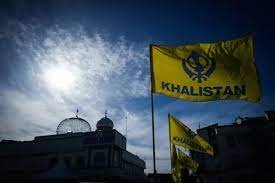The case of Hardeep Singh Nijjar has become a source of tension and dispute between Indian intelligence agencies and Canadian authorities. India alleges that Nijjar, formerly associated with the Khalistan Tiger Force (KTF), was involved in a series of heinous crimes in Punjab and continued his activities even after escaping to Canada. However, Canadian intelligence has presented a contrasting narrative, portraying Nijjar as an innocent and religious-minded individual who leads the Guru Nanak Gurudwara in Surrey, Canada.
According to a dossier compiled by Indian intelligence, Nijjar’s rise to power within the Sikh temple was marked by intimidation tactics against his cousin and the temple’s former president, Raghbir Singh Nijjar. The dossier further claims that Nijjar had ties to notorious terrorists like Gurdeep Singh, also known as Deepa Heranwala, who was responsible for numerous killings in Punjab during the late 1980s and early 1990s.
Nijjar’s journey to Canada in 1996 under a forged identity as “Ravi Sharma” saw him lead a low-profile life as a truck driver and plumber. However, the dossier alleges that he came into contact with KTF chief Jagtar Singh Tara during a visit to Pakistan in 2012, where he was radicalized and trained in arms and explosives by the Inter-Services Intelligence (ISI).
The dossier even asserts that Nijjar received training on using a handheld GPS device in 2013 from a US-based individual sent by Tara. By 2015, Nijjar had assumed the role of operations chief for KTF, despite an Interpol Red Corner notice being issued against him in 2014. Surprisingly, he was granted Canadian citizenship despite having his political asylum request rejected twice.
In his role as KTF operations chief in Canada, Nijjar was allegedly involved in various activities, including funding other Sikh radicals, organizing arms training camps, and training module members for targeted killings and abductions. Several individuals linked to him were arrested, leading to the revelation of his involvement.
The dossier also highlights that Nijjar was designated as a terrorist by the Indian Home Ministry in July 2020, with a substantial cash reward announced by the National Investigation Agency in July 2022. Despite these developments, Nijjar continued to operate freely in Canada, causing India to push for action by Ottawa to bring him to justice.
This ongoing controversy between India and Canada surrounding Hardeep Singh Nijjar raises questions about the credibility of the evidence presented and the stance each country is taking. As the dispute continues, the world watches closely to see how it will be resolved and what impact it may have on India-Canada relations.














